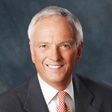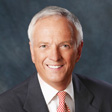Is Your Adviser Really a Fiduciary?
You should ask point blank and check if they are a CEFEX-certified firm.

Profit and prosper with the best of Kiplinger's advice on investing, taxes, retirement, personal finance and much more. Delivered daily. Enter your email in the box and click Sign Me Up.
You are now subscribed
Your newsletter sign-up was successful
Want to add more newsletters?

Delivered daily
Kiplinger Today
Profit and prosper with the best of Kiplinger's advice on investing, taxes, retirement, personal finance and much more delivered daily. Smart money moves start here.

Sent five days a week
Kiplinger A Step Ahead
Get practical help to make better financial decisions in your everyday life, from spending to savings on top deals.

Delivered daily
Kiplinger Closing Bell
Get today's biggest financial and investing headlines delivered to your inbox every day the U.S. stock market is open.

Sent twice a week
Kiplinger Adviser Intel
Financial pros across the country share best practices and fresh tactics to preserve and grow your wealth.

Delivered weekly
Kiplinger Tax Tips
Trim your federal and state tax bills with practical tax-planning and tax-cutting strategies.

Sent twice a week
Kiplinger Retirement Tips
Your twice-a-week guide to planning and enjoying a financially secure and richly rewarding retirement

Sent bimonthly.
Kiplinger Adviser Angle
Insights for advisers, wealth managers and other financial professionals.

Sent twice a week
Kiplinger Investing Weekly
Your twice-a-week roundup of promising stocks, funds, companies and industries you should consider, ones you should avoid, and why.

Sent weekly for six weeks
Kiplinger Invest for Retirement
Your step-by-step six-part series on how to invest for retirement, from devising a successful strategy to exactly which investments to choose.
In the world of financial planning, the term "fiduciary" has become co-opted and rather commoditized. From my perspective, being a fiduciary at its most basic definition means placing your client's interests before your own. But further unpacked, this simple definition can become a viper's den of complications and caveats in certain hands.
Let's discuss the distinctions of a true fiduciary and those who may simply use the term.
The largest distinction lies in the difference between investment advisers, acting as a fiduciary by strict definition, and a broker-dealer, whose actions may not be in a fiduciary capacity at all. My firm's investment adviser, Certified Advisory Corp, is the former and provides investment advice to its clients. The only fee we derive for the advice rendered is the agreed-upon fee.
From just $107.88 $24.99 for Kiplinger Personal Finance
Become a smarter, better informed investor. Subscribe from just $107.88 $24.99, plus get up to 4 Special Issues

Sign up for Kiplinger’s Free Newsletters
Profit and prosper with the best of expert advice on investing, taxes, retirement, personal finance and more - straight to your e-mail.
Profit and prosper with the best of expert advice - straight to your e-mail.
In contrast, a broker-dealer cannot legally provide substantive advice. The advice they do provide typically comes attached to a product. This product may be the brokerage platform itself and, more insidiously, a proprietary investment product.
Imagine a scenario in which your broker-dealer charges you 0.50% for investment advice on your $10 million of investable plan assets. They also charge you a fee for trades executed through their brokerage platform—clear incentive to ensure your broker-dealer affiliated adviser uses only that platform and does not search for equal, more cost-effective alternatives. At the same time, your broker-dealer-affiliated adviser may also push a branded proprietary product. If selected, the revenue of this product flows back to the broker-dealer parent, and your adviser likely receives a commission or soft dollar incentive for this additionally derived revenue.
This proprietary investment product, now added to your portfolio or investment lineup, may be a fine product, and truly suitable. However, did your adviser act in your best interest and search for alternatives that perhaps had a better share class or other lower fees? In a worst-case scenario, are you certain they properly evaluated investment alternatives that may not only have been cheaper, but may have also outperformed their proprietary offering?
The commission-based incentive to sell you this product ensures that they likely have not taken these actions. If you are a sponsor of an employee retirement plan, this lack of fiduciary due diligence on your end now opens you up to a litany of breach of fiduciary duty claims that settle on your shoulders—not on your broker-dealer, who never truly accepted the role of a fiduciary that ERISA mandates.
The Department of Labor's Fiduciary Rule
These issues should be enough to bring one question to the fore: "How much money is my broker-dealer or broker-dealer's registered representative deriving from their relationship with me?" The answer is likely much more than the fee you believe you're paying.
The next question you should ask your adviser point blank: "Are you a fiduciary? And, if so, "What kind of fiduciary are you?"
Helping to clarify these questions is the Department of Labor's new fiduciary rule, which is scheduled to be instituted in full in the coming months. And while complicated, totaling more than 1,000 pages, it does lay out one very clear thesis: Broker-dealers cannot provide advice nor exist as fiduciaries in any capacity if they are also providing investment product. Given this, it does beg the question of whether broker-dealers can ever act as fiduciaries or, in fact, have ever truly acted in this capacity historically.
Besides asking whether a professional is a fiduciary, you can also check whether the adviser has received the Centre for Fiduciary Excellence's CEFEX designation—as Certified Advisory Corp has.
Only 75 investment advisers in the U.S. are currently CEFEX certified. The process to certification requires a 120-page questionnaire and an on-site examination. The Centre for Fiduciary Excellence is independent, and its CEFEX designation is described as serving investors "who require assurance that their investments are being managed according to commonly accepted best practices." At the same time, it assists these investors in identifying and determining "the trustworthiness of investment fiduciaries."
You can learn more about the specifics of the CEFEX process here, but I believe this designation underscores a commitment to both the spirit and the letter of being a fiduciary.
When working with a CEFEX-certified firm, you can rest assured that you are working with a true fiduciary, who is providing you the latest insight to achieve distinctive results.
Joseph F. Bert, CFP®, AIF®, the founder of Certified Financial Group, Inc., has been in the financial planning profession since 1976. He is also president of Certified Advisory Corp and a member of the Financial Planning Association, where he served as its President and Chairman of the Central Florida chapter.
Since 1976, Certified Financial Group, Inc., has grown to become one of central Florida's largest independent financial services firms providing fee-only financial planning and investment management to individuals, families and employer-related retirement plans through its Investment Adviser, Certified Advisory Corp.
Profit and prosper with the best of Kiplinger's advice on investing, taxes, retirement, personal finance and much more. Delivered daily. Enter your email in the box and click Sign Me Up.

Joe Bert, CFP® is the Chairman and CEO of Certified Financial Group, Inc. and has been in the financial planning profession since 1976. Joe can be heard every Saturday in Orlando, FL on News 96.5 FM at 9:00 a.m. EST hosting On the Money and seen twice weekly on the Fox TV affiliate, WOFL Fox 35. An experienced and knowledgeable financial planning practitioner, he has been affectionately referred to as the "Oracle of Orlando®" by his audience.
-
 Over 65? Here's What the New $6K 'Senior Deduction' Means for Medicare IRMAA Costs
Over 65? Here's What the New $6K 'Senior Deduction' Means for Medicare IRMAA CostsTax Breaks A new deduction for people over age 65 has some thinking about Medicare premiums and MAGI strategy.
-
 U.S. Congress to End Emergency Tax Bill Over $6,000 Senior Deduction and Tip, Overtime Tax Breaks in D.C.
U.S. Congress to End Emergency Tax Bill Over $6,000 Senior Deduction and Tip, Overtime Tax Breaks in D.C.Tax Law Here's how taxpayers can amend their already-filed income tax returns amid a potentially looming legal battle on Capitol Hill.
-
 5 Investing Rules You Can Steal From Millennials
5 Investing Rules You Can Steal From MillennialsMillennials are reshaping the investing landscape. See how the tech-savvy generation is approaching capital markets – and the strategies you can take from them.
-
 When Estate Plans Don't Include Tax Plans, All Bets Are Off: 2 Financial Advisers Explain Why
When Estate Plans Don't Include Tax Plans, All Bets Are Off: 2 Financial Advisers Explain WhyEstate plans aren't as effective as they can be if tax plans are considered separately. Here's what you stand to gain when the two strategies are aligned.
-
 Counting on Real Estate to Fund Your Retirement? Avoid These 3 Costly Mistakes
Counting on Real Estate to Fund Your Retirement? Avoid These 3 Costly MistakesThe keys to successful real estate planning for retirees: Stop thinking of property income as a reliable paycheck, start planning for tax consequences and structure your assets early to maintain flexibility.
-
 I'm a Financial Planner: These Small Money Habits Stick (and Now Is the Perfect Time to Adopt Them)
I'm a Financial Planner: These Small Money Habits Stick (and Now Is the Perfect Time to Adopt Them)February gets a bad rap for being the month when resolutions fade — in fact, it's the perfect time to reset and focus on small changes that actually pay off.
-
 Social Security Break-Even Math Is Helpful, But Don't Let It Dictate When You'll File
Social Security Break-Even Math Is Helpful, But Don't Let It Dictate When You'll FileYour Social Security break-even age tells you how long you'd need to live for delaying to pay off, but shouldn't be the sole basis for deciding when to claim.
-
 I'm an Opportunity Zone Pro: This Is How to Deliver Roth-Like Tax-Free Growth (Without Contribution Limits)
I'm an Opportunity Zone Pro: This Is How to Deliver Roth-Like Tax-Free Growth (Without Contribution Limits)Investors who combine Roth IRAs, the gold standard of tax-free savings, with qualified opportunity funds could enjoy decades of tax-free growth.
-
 One of the Most Powerful Wealth-Building Moves a Woman Can Make: A Midcareer Pivot
One of the Most Powerful Wealth-Building Moves a Woman Can Make: A Midcareer PivotIf it feels like you can't sustain what you're doing for the next 20 years, it's time for an honest look at what's draining you and what energizes you.
-
 I'm a Wealth Adviser Obsessed With Mahjong: Here Are 8 Ways It Can Teach Us How to Manage Our Money
I'm a Wealth Adviser Obsessed With Mahjong: Here Are 8 Ways It Can Teach Us How to Manage Our MoneyThis increasingly popular Chinese game can teach us not only how to help manage our money but also how important it is to connect with other people.
-
 Looking for a Financial Book That Won't Put Your Young Adult to Sleep? This One Makes 'Cents'
Looking for a Financial Book That Won't Put Your Young Adult to Sleep? This One Makes 'Cents'"Wealth Your Way" by Cosmo DeStefano offers a highly accessible guide for young adults and their parents on building wealth through simple, consistent habits.